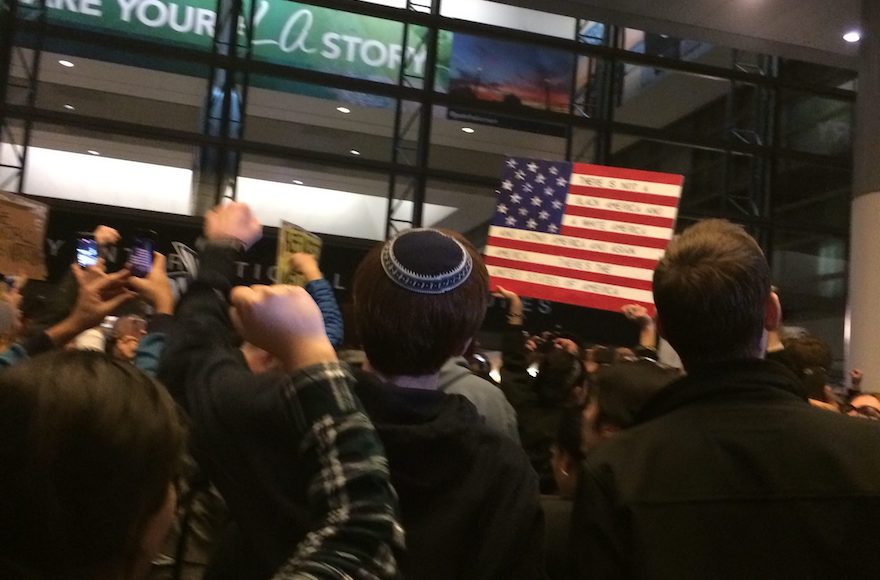(JTA) — The U.S. ban on refugees and immigrants from seven predominantly Muslim countries has affected several Jewish families, according to the refugee support and advocacy group HIAS.
The ban, which came Friday in an executive order signed by President Donald Trump, has plunged into further uncertainty the lives of a Jewish Iranian man in his late 20s and his middle-aged mother, who for the past year have been waiting in an unnamed country for a reply on their application for asylum in the United States, HIAS CEO Mark Hetfield, told JTA Sunday.
Citing privacy concerns and a desire not to further complicate the application process, Hetfield declined to name the applicants or reveal their whereabouts. The man and his mother, he said, are trying to reunite with two of the mother’s daughters who are already in the United States.
Last year, HIAS handled 159 applications by Jews for asylum in the United States, among them 89 Iranians and several Jews from Yemen.
Founded as the Hebrew Immigrant Aid Society in 1881 to assist Jews fleeing pogroms in Russia and Eastern Europe, HIAS was recognized in 1976 by the Justice Department as an agency authorized to assist immigration. It now has hundreds of staff and is active in over 30 countries, processing more than 4,000 refugee asylum applications annually – most of them for non-Jews.

Mark Hetfield, the president and CEO of HIAS. (Courtesy of HIAS)
HIAS applicants from the Middle East — who are vetted and screened in a process which can take as long as two years – often travel to the United States through Ukraine or Austria if they have a visa.
HIAS is among several American Jewish groups that have protested Trump’s executive order.
“The ban affects hundreds of our clients, for whom it may be the difference between life and death,” Hetfield said.
Hetfield also noted a case involving a non-Jewish family of asylum seekers from Syria, which despite having obtained on Jan. 20 visas to enter the United States as refugees following a Homeland Security Department vetting, were turned back in Ukraine to their camp in Jordan on Jan. 27. Airline officials cited Trump’s executive order in nixing the family’s flight to the United States.
The mother and her daughters, ages 5 and 8, seek to reunite with the father of the family, who is already in the United States. They were allowed back into Jordan, “but in such cases, there is a risk that people who leave to become refugees in the United States will not be let back in, or worse,” Hetfield said.
JTA has documented Jewish history in real-time for over a century. Keep our journalism strong by joining us in supporting independent, award-winning reporting.






